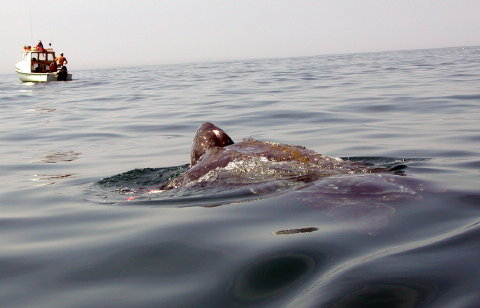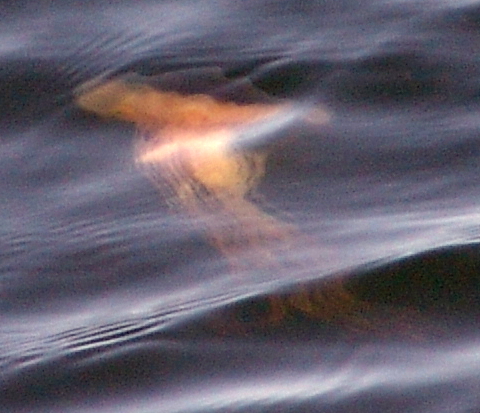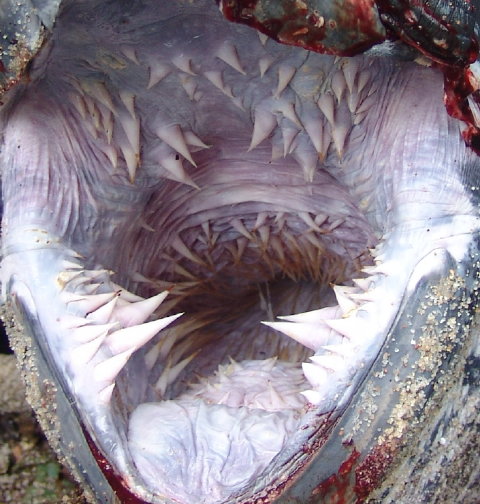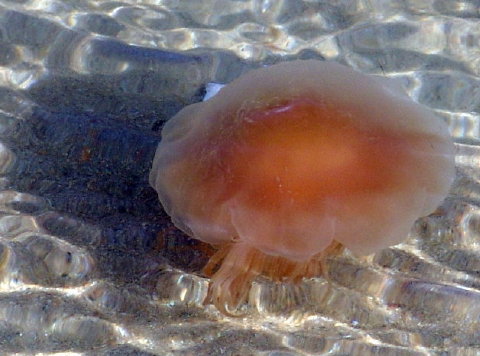Giant Leatherback Sea Turtle (Dermochelys coriacea)
Each spring witnesses the return of leviathan leatherback sea turtles to Buzzards Bay, Massachusetts. These massive sea turtles, an anachronistic relic of prehistoric times and the most massive living repile on Planet Earth, are a globally listed endangered species.  Adults can reach more than 8 feet in length and 2000 pounds in weight. According to the U.S. Fish and Wildlife Service, “The leatherback is the largest, deepest diving, and most migratory and wide ranging of all sea turtles.”
Lion’s Mane Jellyfish (Cyanea capillata)
Leatherbacks achieve this massive size by feasting on a diet almost exclusively composed of jellyfish. In Buzzards Bay, the attractive prey that entices leatherbacks to return each year is lion’s mane jellyfish. So, each spring time the Turtle Journal team watches the shores of Buzzards Bay for the first appearance of a lion’s mane bloom, which presages the arrival of our favorite leviathans.
 Lion’s Mane Jellyfish in Sippican Harbor
Today marked the first lion’s mane jellyfish that we have documented in Buzzards Bay this (pre-)spring. We also recorded our first ctenophora (also called comb jellies) in Sippican Harbor yesterday.
Lion’s Mane Jellfish
So, if jellyfish are the breakfast, lunch and dinner of leviathans, how are leatherback sea turtles configured to exploit this exclusive diet to gain such massive sizes? Since jellyfish congregate in patches amidst vast empty distances of the oceans, how can leatherbacks take advantage of a good spot when it comes along in their pelagic journeys?
Mouth of a 700-Pound Leatherback Sea Turtle
The enormous mouth and the esophagus are lined with long, downward pointing spikes. For a jellyfish, and anything else that enters, the leatherback GI system is a one way journey: downward. When a leatherback runs into a patch of jellyfish it gorges itself, filling its mouth, esophagus, stomach and intestines with a bulging mass of food. Another interesting anatomical feature of the leatherback is its enormous liver which processes the generous supply of toxins that it consumes from its jellyfish prey.
Lion’s Mane Jellyfish in Sippican Harbor
For the Turtle Journal team, the first sighting of lion’s mane jellyfish each year means that marine turtle season is fast approaching. Welcome home, leatherbacks! We’ve missed you all winter long.






[…] The Breakfast, Lunch and Dinner of Leviathans Returns to Buzzards … […]